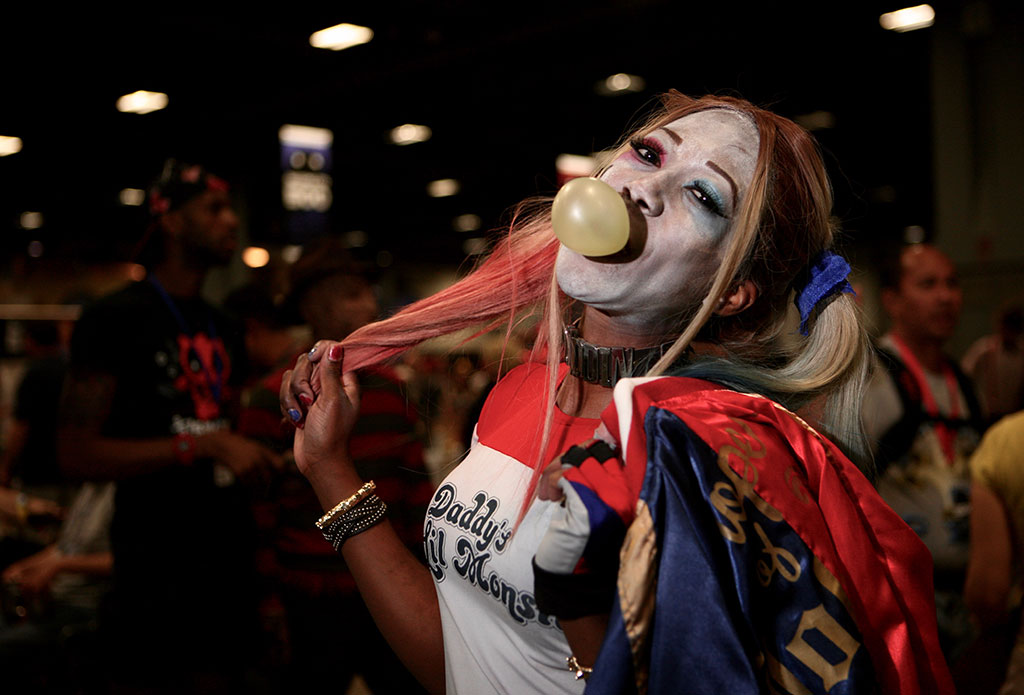If you want to understand the cultural change that’s taken place in Washington, slide onto a stool at Jack Rose Dining Saloon, the trendy whiskey bar in Adams Morgan, where the menu of arcane liquors fills a thick wooden binder. Order a bourbon and note the earnest, unguarded gleam in the bartender’s eye as she rhapsodizes about your selection’s “mouthfeel.” She is a whiskey nerd in her element, holding forth about what she loves in one of the most powerful cities on Earth.
Or put another way, the nerds have won. All culture has become nerd culture, and at the center of the winner’s circle is Washington.
It wasn’t always this way, for nerds or Washington, which in the long decades after JFK’s swinging Georgetown years suffered from a legendary lack of cool. A town of lawyers, consultants, and out-and-proud tax-policy wonks, the city had nerdish passion written into its DNA. “The ‘nerd’ image is central to many Washingtonians’ conception of themselves and their city,” wrote Jordan Fraade on the Baffler’s blog in 2014. “DC is a town full of smart, detail-obsessed overachievers who made good and used their skills to land the ultimate Knowledge Economy jobs.” To the bow-tied poli-sci major who could discuss nuclear-missile throw-weights and Batman’s utility belt with equal authority, Washington was Mecca.
Then the new nerdism changed everything. The superhero flicks and fantasy epics to which millions now flock, the Comic-Cons sprouting like Bulbasaurs in cities across the country—once the exclusive province of narrow-chested, inhaler-sucking hardcores—became hot tickets. In this Nerd Nirvana, the specific object of enthusiasm has come to matter less than the all-consuming nature of the enthusiasm itself. “Nerding out”—about craft brewing or Himalayan pink salt, Pokémon Go or grilling rubs—is suddenly the new normal. When we love a thing, we love it deeply.
Which is why Washington, almost overnight, has become a city with a definable, if not entirely flattering, culture. It’s not that we’ve suddenly become hip—the world has come to us. We’ve reached Peak Geek.
RELATED: See the Beautiful, Magical, and Incredible Characters at This Year’s Awesome Con
“For a city as small as DC,” says Greg Engert, beer director for the Neighborhood Restaurant Group, “we now have a disproportionate number of people passionately interested in beer and cheese and spirits and wine and coffee. Not just out at restaurants but at home. They read everything they can online; they go on social media to discuss and debate and analyze.”
The internet, as Engert notes, has been a key to this transformation. Old-school nerds zealously hoarded the lore they worked to acquire—those Monty Python sketches, after all, hadn’t memorized themselves. The internet removed the barriers to entry: The internecine backstories of every member of the X-Men float just a click away from anyone with a browser. And it isn’t only the classic nerd knowledge—even the noobiest of non-nerds can become conversant on a subject and connect with others who share their passion. This turns out to be a ruthlessly efficient way to transform idle curiosity into frothing nerd fervor.
So even as the personal computer brought nerds into the mainstream like Norway rats arriving on trade ships, it also betrayed them. The normals nerded up: Pitch Perfect destigmatized a cappella singing; athletes sat down to Dungeons & Dragons. Shows about zombies and dragons are watched by millions, and a thick-necked jock on the Red Line can be overheard confessing to a friend, “I loved the new Star Wars, bro. I’m such a nerd!” The label “nerd” means less than it ever has.
For a surly, middle-aged nerd like me, who can’t watch High School Musical without a trigger warning, these new enthusiasts can be disquieting. There are, however, benefits to society at large, nowhere more than in our middle schools. “No one is classified as a nerd anymore,” says a young acquaintance of mine, a student at a Montgomery County magnet school. “It’s a term of endearment now. If I talk about how much I love Peggy Carter or theater, my friends will say, ‘God, you are such a nerd for this stuff’ ”—stressing for something. She doesn’t let her nerdish passions define her; they’re an aspect of her personality.
This up-and-coming breed of nerdiness is a gentler kind, without the savage intensity that often brands nerds as without nuance.
But I think my middle-school friend is on to something: Washington may always be the original City of Nerds, where our passions shape how we see ourselves, but the future may lie in letting our obsessions cool—in thinking once again of our work as our job, our private passions as hobbies. Stuff we like, not everything we are.
Glen Weldon is author of The Caped Crusade: Batman and the Rise of Nerd Culture. On Twitter, he’s @ghweldon.














